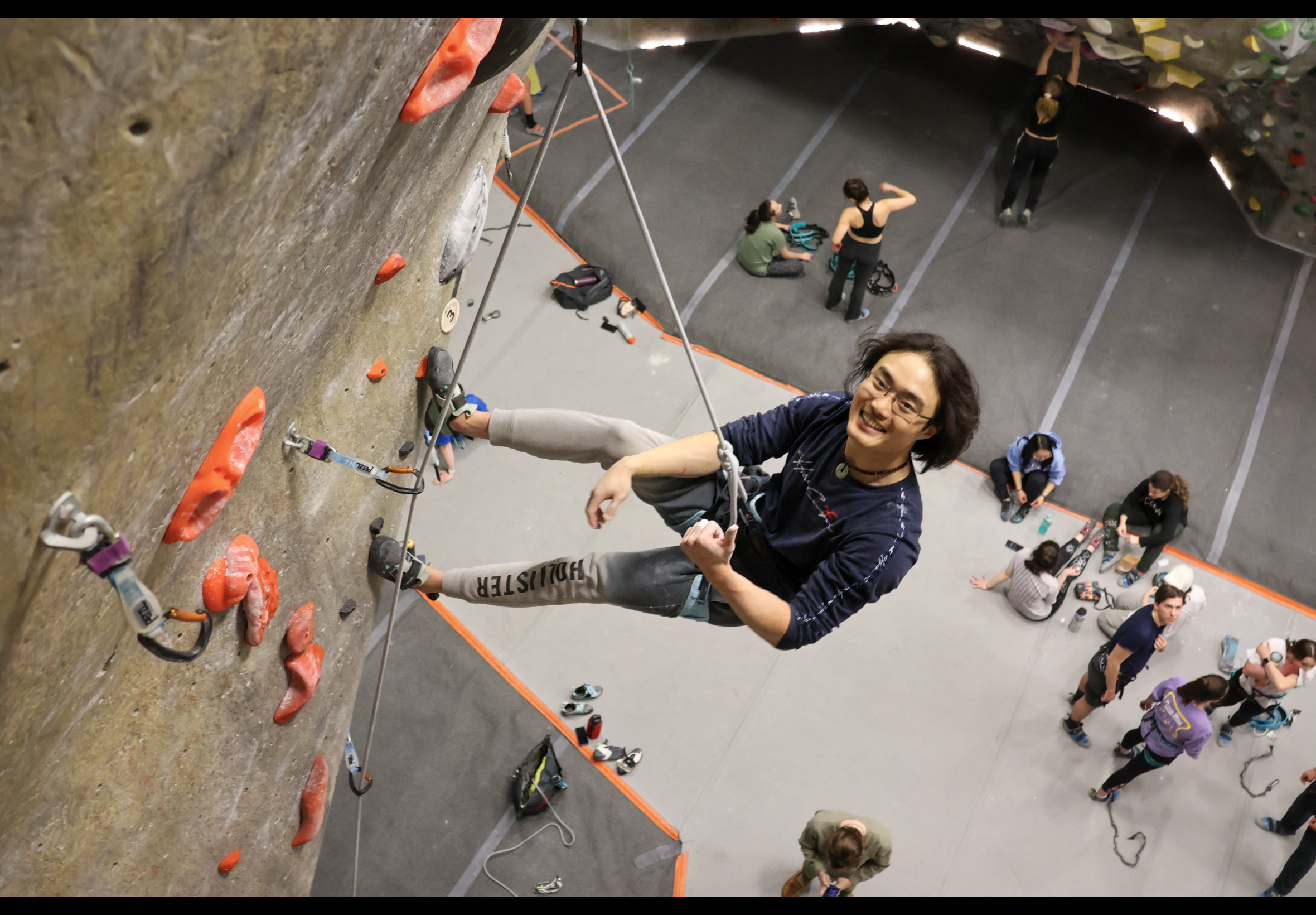The climbing club meets on Tuesdays and Thursdays at the Rock Spot Climbing Gym in Wakefield. PHOTO CREDIT: Lucas Masiello | Staff Photographer
Rock climbing – whether you saw its Olympic debut in Tokyo on TV, experienced it through blockbuster films like “The Alpinist” or “Free Solo”, or heard about it from friends, chances are you’ve heard something about this peculiar sport in recent years.
Over the past two decades, the introduction of indoor climbing gyms brought a sport that was once only available in mountainous areas to city centers and college campuses across the world – bringing with it a competition scene that has worked its way to the collegiate and Olympic levels. At the Rock Spot Climbing Gym in Wakefield, the University of Rhode Island climbing team hone in on competition-level technique.
Founded in the fall of 2022, the URI climbing team has evolved from a small group of local climbers that held informal, bi-weekly meetings to a thirty-some-strong cohort that offers instructed practice, outdoor climbing trips and competition opportunities.
“We made it to the second semester by the skin of our teeth,” Kat Liberty, the team’s president, said. “The club is definitely still in its formative stage, but it’s been great. This semester, we’ve had a lot of new people come to it, so we definitely have the numbers.”
The rapid growth of climbing at URI is reflected in worldwide trends. According to Statista, a consumer data firm, six million Americans climbed at an indoor gym in 2022, creating a $536 million industry.
Collegiate climbing is divided into two disciplines: lead climbing and bouldering. Held in the fall, lead climbing competitors attempt to scale large walls with a rope for protection. Climbers can only climb each wall once, and points are awarded by how far up the wall the competitor reaches before falling. In bouldering competitions, held in spring, climbers attempt to complete smaller, more difficult climbs without a rope. Bouldering scores are judged by the number of attempts it takes a climber to complete each wall.
The introduction of a climbing team to URI increases accessibility to the sport for new climbers, as being a member of the club provides discounted gym memberships ($40/month compared to the regular $70/month membership) and support from experienced climbers.
“A lot of people have started climbing through the club because of the discount,” Liberty said. “It’s nice to be in a community of people who are willing to help you out and give you pointers along the way. I’m still learning from all these people who have climbed for much longer than I have. As far as money goes, climbing is inherently expensive but the discount helps with that.”
Offering an alternative to conventional sports, rock climbing provides a welcoming community for athletes who may not have excelled in ball sports.
“Rock Spot is just a really chill place,” Jeffy Wang, one of the club’s members, said.
Having climbed for only one year, Wang now competes in indoor competition as well as traveling across New England to outdoor climbs.
“The community here just exudes positivity and it really gives off an affinity for people to keep themselves in the gym and practice longer,” he said.
The URI Rock Climbing team meets Tuesday and Thursday nights at 7:30 p.m. at the Rock Spot Climbing Gym in Wakefield.

